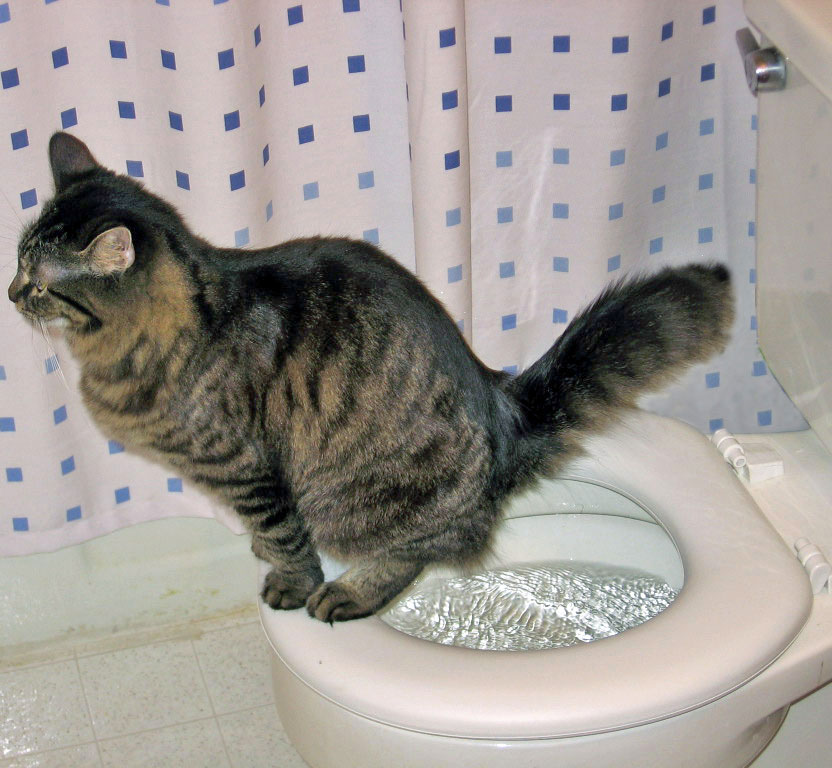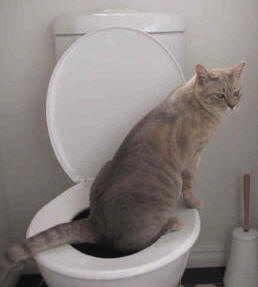What are your concepts about Can You Flush Cat Poo or Litter Down the Toilet??

Intro
As cat owners, it's important to be mindful of how we deal with our feline friends' waste. While it may seem practical to flush cat poop down the toilet, this practice can have detrimental consequences for both the setting and human wellness.
Environmental Impact
Flushing pet cat poop presents hazardous pathogens and parasites into the water, posturing a considerable danger to aquatic environments. These impurities can negatively affect aquatic life and compromise water high quality.
Wellness Risks
Along with environmental worries, flushing feline waste can additionally pose health and wellness threats to human beings. Cat feces may have Toxoplasma gondii, a parasite that can cause toxoplasmosis-- a potentially extreme health problem, specifically for expectant women and people with damaged body immune systems.
Alternatives to Flushing
Fortunately, there are much safer and a lot more liable ways to dispose of feline poop. Consider the complying with options:
1. Scoop and Dispose in Trash
One of the most typical approach of disposing of cat poop is to scoop it into a naturally degradable bag and toss it in the garbage. Be sure to use a specialized litter scoop and deal with the waste immediately.
2. Use Biodegradable Litter
Select eco-friendly pet cat clutter made from products such as corn or wheat. These litters are environmentally friendly and can be safely gotten rid of in the trash.
3. Bury in the Yard
If you have a yard, consider burying pet cat waste in a marked location far from vegetable yards and water sources. Make certain to dig deep adequate to stop contamination of groundwater.
4. Set Up a Pet Waste Disposal System
Purchase an animal waste disposal system specifically designed for pet cat waste. These systems make use of enzymes to break down the waste, minimizing smell and ecological effect.
Conclusion
Responsible pet dog possession prolongs beyond providing food and sanctuary-- it likewise includes appropriate waste management. By refraining from purging feline poop down the toilet and opting for different disposal techniques, we can reduce our ecological impact and safeguard human health.
Why Can’t I Flush Cat Poop?
It Spreads a Parasite
Cats are frequently infected with a parasite called toxoplasma gondii. The parasite causes an infection called toxoplasmosis. It is usually harmless to cats. The parasite only uses cat poop as a host for its eggs. Otherwise, the cat’s immune system usually keeps the infection at low enough levels to maintain its own health. But it does not stop the develop of eggs. These eggs are tiny and surprisingly tough. They may survive for a year before they begin to grow. But that’s the problem.
Our wastewater system is not designed to deal with toxoplasmosis eggs. Instead, most eggs will flush from your toilet into sewers and wastewater management plants. After the sewage is treated for many other harmful things in it, it is typically released into local rivers, lakes, or oceans. Here, the toxoplasmosis eggs can find new hosts, including starfish, crabs, otters, and many other wildlife. For many, this is a significant risk to their health. Toxoplasmosis can also end up infecting water sources that are important for agriculture, which means our deer, pigs, and sheep can get infected too.
Is There Risk to Humans?
There can be a risk to human life from flushing cat poop down the toilet. If you do so, the parasites from your cat’s poop can end up in shellfish, game animals, or livestock. If this meat is then served raw or undercooked, the people who eat it can get sick.
In fact, according to the CDC, 40 million people in the United States are infected with toxoplasma gondii. They get it from exposure to infected seafood, or from some kind of cat poop contamination, like drinking from a stream that is contaminated or touching anything that has come into contact with cat poop. That includes just cleaning a cat litter box.
Most people who get infected with these parasites will not develop any symptoms. However, for pregnant women or for those with compromised immune systems, the parasite can cause severe health problems.
How to Handle Cat Poop
The best way to handle cat poop is actually to clean the box more often. The eggs that the parasite sheds will not become active until one to five days after the cat poops. That means that if you clean daily, you’re much less likely to come into direct contact with infectious eggs.
That said, always dispose of cat poop in the garbage and not down the toilet. Wash your hands before and after you clean the litter box, and bring the bag of poop right outside to your garbage bins.
https://trenchlesssolutionsusa.com/why-cant-i-flush-cat-poop/

Hopefully you liked our article about Don’t flush cat feces down the toilet. Thanks a ton for finding the time to browse our blog post. So long as you enjoyed reading our blog post kindly remember to share it. I praise you for your time. Visit us again soon.
Call Today